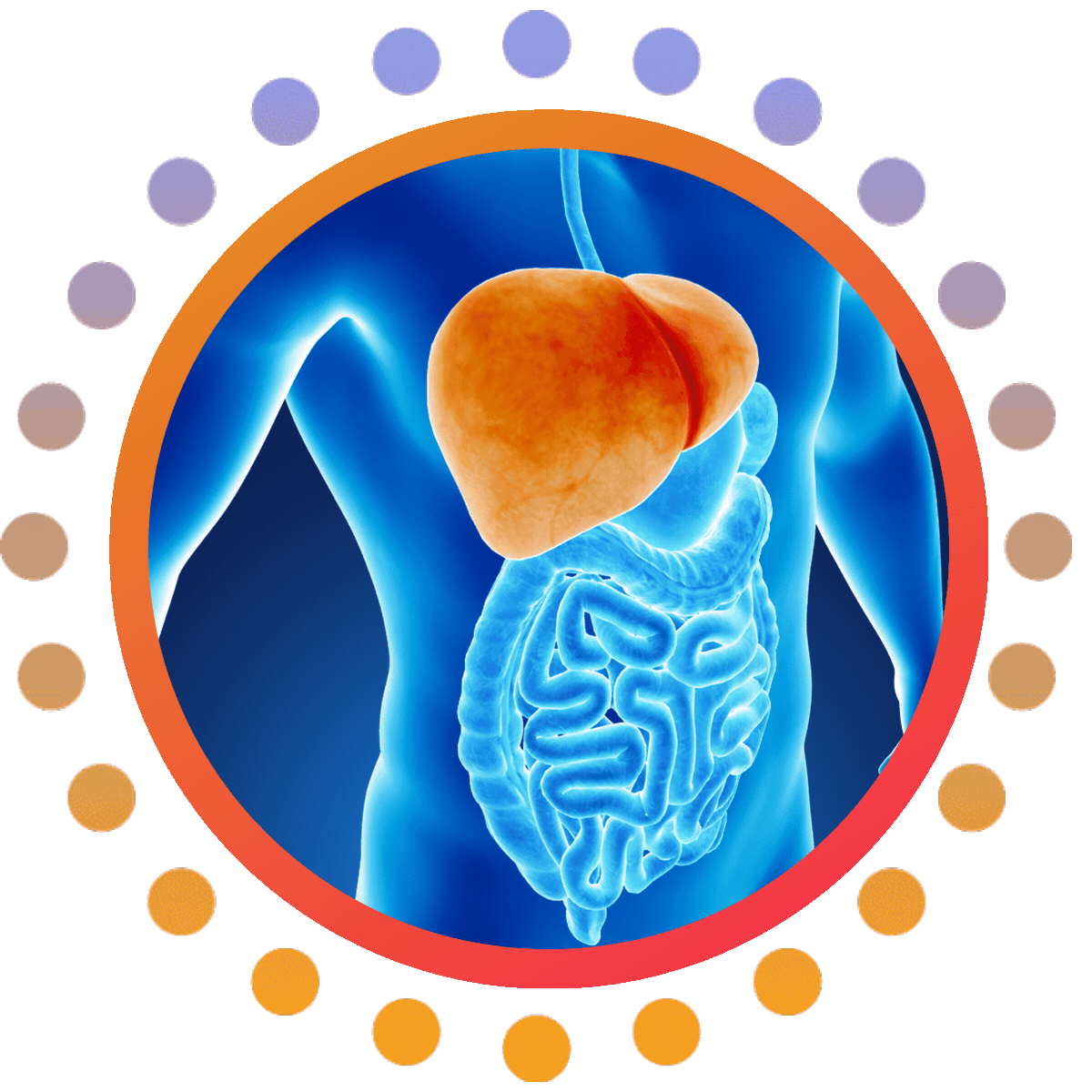
Web Stories
Step Into the Story: Explore Now
Liver, also called Yakrit in Ayurveda is one of the most important organs concerned with metabolism. Yakrit is derived from the Sanskrit words-Yat meaning “conversion” and Krit meaning “to do”. It, along with pleeha or spleen is said to be the seat of Pitta and Raktavahasrotomula or the origin of blood conveying channels. This emphasises the crucial role it plays in maintaining overall health.
Fatty liver is a common condition that affects liver health, where excess fat accumulates in liver cells, impacting its function. This blog will delve deeper into causes, symptoms and ayurveda solutions to help prevent Fatty liver and ensuring your liver health.
Fatty liver develops when the balance between fat formation and fat breakdown in the liver is disturbed, leading to gradual fat buildup inside liver cells. This can happen due to unhealthy eating habits, lack of physical activity, obesity, diabetes, and regular alcohol intake. In the early stages, fatty liver may not cause any clear symptoms, which is why many people are unaware of the problem until it is found during routine tests. If ignored, it can slowly progress to liver inflammation and long-term damage, making early awareness and timely care very important.

Know what is Fatty Liver
Liver plays an important role in fat metabolism and hence it is a common site of fat accumulation. A normal liver has small amount of fat deposition, however if it reaches over 5% of your liver weight, it is undesirable. Fatty liver is of two main types:
- Nonalcoholic fatty liver disease (NAFLD)- which may be simple with no liver cell damage or scarring; or severe with liver cell scarring and cirrhosis. Risk factors include type 2 diabetes and prediabetes, obesity, high cholesterol, high blood pressure, Hepatitis C, exposure to toxins etc.
- Alcoholic fatty liver disease- is caused due to excessive alcohol consumption and may be followed by alcoholic hepatitis and cirrhosis.
Both NAFLD and alcoholic fatty disease are difficult to diagnose as there are no symptoms. However some people may feel tiredness, dull pain or discomfort in abdomen and weakness.
Causes of Fatty Liver Disease
Several factors can lead to the development of fatty liver disease, but making some important lifestyle changes can help prevent this serious condition.
- Being overweight or obese: Carrying extra weight can cause fat to build up in the liver.
- Unhealthy diet: Eating foods high in sugar, refined carbs, and saturated fats can increase the risk.
- Insulin resistance and type 2 diabetes: These conditions make it more likely for fat to accumulate in the liver.
- Metabolic syndrome: A combination of issues like high blood pressure, high blood sugar, and excess body fat can raise the risk.
- Alcohol consumption: Drinking too much alcohol is a common cause of fatty liver disease.
- Rapid weight loss: Losing weight too quickly can overwhelm the liver and lead to fat buildup.
- Certain medications: Drugs like corticosteroids, amiodarone, and tamoxifen can contribute to fat accumulation in the liver.
Signs and Symptoms of Fatty Liver
Fatty liver disease happens when fat builds up in the liver, making it harder for the liver to function properly. In the early stages, many people don’t notice any symptoms. However, as fat accumulation increases, some signs may become noticeable:
- Tiredness and Fatigue: One of the earliest symptoms is feeling constantly tired or low on energy, even after getting enough rest. This happens because the liver struggles to perform its usual functions efficiently.
- Discomfort or Pain in the Upper Abdomen: You may feel a dull pain or heaviness, especially in the upper right side of your stomach where the liver is located. This happens when the liver becomes enlarged due to fat buildup.
- Unexplained Weight Loss: You might start losing weight without trying, which can be a sign that the liver isn’t processing nutrients properly.
- Weakness: A constant feeling of weakness can occur because the liver plays an important role in providing energy to the body. When the liver is not functioning well, energy levels drop.
- Yellowing of the Skin and Eyes (Jaundice): In more advanced cases, fatty liver disease can lead to jaundice, which turns the skin and the whites of the eyes yellow due to the liver’s inability to process bilirubin.
- Swelling in the Abdomen (Ascites): Severe fatty liver disease can cause fluid to build up in the abdomen, leading to visible swelling and discomfort.
- Dark Patches on the Skin: You might notice dark patches, especially around the neck, underarms, or groin area. This is often linked to insulin resistance, which can be associated with fatty liver.
Enlarged Liver: During a medical examination, your doctor may detect that your liver is enlarged, which is a physical sign of fatty liver disease.
Ayurveda Treatment for Fatty Liver
In Ayurveda, fatty liver is called Yakrit Roga. According to Ayurveda principles, it occurs due to an imbalance in the Pitta dosha (which governs digestion and metabolism) and the accumulation of Ama (toxins) in the body. The goal of treatment is to detoxify the liver, restore balance, and strengthen digestion.
1. Herbal Remedies for Liver Detoxification
Ayurveda offers natural herbs that help in detoxifying the liver and improving its function:
- Bhumi Amla (Phyllanthus niruri): Known for its powerful liver-healing properties. It helps cleanse toxins from the liver and supports overall liver health.
- Kutki (Picrorhiza kurroa): A well-known herb that detoxifies the liver and improves bile flow, which aids digestion and reduces fat accumulation.
- Kalmegh (Andrographis paniculata): Acts as a liver protector and helps reduce inflammation.
- Punarnava (Boerhavia diffusa): Helps in reducing swelling in the liver and aids in detoxifying the body by promoting better kidney function.
2. Dietary Recommendations (Pathya-Apathya)
Making changes in your diet is essential for managing fatty liver. Ayurveda recommends:
- What to Eat:
- Warm, freshly cooked, and easily digestible foods.
- Vegetables like spinach, bitter gourd, and bottle gourd.
- Whole grains such as barley and oats.
- Herbal teas like ginger or cumin tea to aid digestion.
- What to Avoid:
- Oily, fried, and processed foods.
- Heavy dairy products such as cheese and cream.
- Sugary drinks and desserts.
- Alcohol and smoking, which can worsen liver health.
3. Lifestyle Changes
Certain daily practices can help improve liver function and overall health:
- Exercise Regularly: Gentle exercises like brisk walking, yoga, and stretching improve metabolism and help burn fat.
- Stress Management: Techniques like meditation, deep breathing exercises (pranayama), and mindfulness help reduce stress, which can affect liver health.
- Sleep Well: A good night’s sleep helps in the body’s natural detox process and overall recovery.
4. Panchakarma Therapy (Detox Treatment)
Panchakarma is a traditional Ayurveda detox therapy that helps remove toxins from the body:
- Virechana (Therapeutic Purgation): A cleansing procedure that helps flush out toxins from the liver and digestive tract, restoring balance in the body.
- Abhyanga (Oil Massage): Using medicated oils to stimulate the lymphatic system and promote detoxification.
- Swedana (Herbal Steam Therapy): Encourages sweating to eliminate toxins through the skin.
5. Ayurveda Medicines and Formulations
Certain Ayurveda formulations are beneficial in improving liver health:
- Triphala Churna: A blend of three fruits that aids digestion, detoxifies the liver, and boosts metabolism.
- Liv.52: A popular Ayurveda formulation that supports liver function and detoxification.
- Arogyavardhini Vati: Known for managing liver-related issues and balancing bile secretion.
Ayurveda Lifesyle and Dietary Guidelines for Fatty Liver
- Maintaining a healthy weight can help reverse mild to moderate cases of fatty liver. Hence, agnideepana or maintaining a good metabolic fire can help reverse fatty liver. Eat light and easily digestible foods. Panchakarma therapies under the supervision of an ayurveda physician help with fatty liver ayurvedic treatment.
- Include kshudra dhanya ( millets) in your diet as they are ruksha (drying) and medohara. However make sure to soak the millets well, cook them with spices and consume them in regulated quantity, as they are difficult to digest.
- Consume freshly prepared food and eat only when you are hungry. Increase your intake of whole grains, vegetables and legumes. Avoid red meat and quit smoking and alcohol.
- Herbs such as Guduchi, Katuki and Bhunimba have hepatoprotective activity and are best ayurvedic remedy for fatty liver. However never consume these herbs in raw form, as this may harm your liver- instead get in touch with your Ayurveda doctor to understand how to include these in your diet.
- Limit your intake of salt and sugar. Keeping your blood sugar under control can help with reversal of fatty liver. Maintain a healthy lifestyle and do regular exercise.
- Yoga and pranayama can help improve liver function. Kapalabhati Pranayama, Ardha matsyendrasana, Gomukhasana, Dhanurasana, and Dhyana (Meditation) can help in deep relaxation and improved liver health.

Conclusion
Ayurveda offers holistic remedies for fatty liver by addressing the root causes and supporting liver health. With the guidance of Ayurveda principles, mild to moderate cases of fatty liver can be managed by lifestyle and dietary modifications. Incorporating herbs with hepatoprotective properties, following a mindful diet, maintaining a healthy weight, and adopting a balanced lifestyle that includes regular exercise and yoga practices,can help in reversing the condition. Ayurveda emphasizes the importance of treating the underlying imbalance rather than just the symptoms, promoting overall well-being and liver health.
Frequently Asked Questions
- Eating a healthy, balanced diet
- Exercising regularly
- Losing excess weight
- Avoiding alcohol
- Controlling diabetes and cholesterol
- Following a diet rich in fruits, vegetables, and whole grains
- Exercising for at least 30 minutes a day
- Drinking plenty of water
- Limiting sugary and processed foods
- Consuming foods with healthy fats, like nuts and fish
- Drinking warm water with lemon in the morning
- Using herbs like Triphala, Turmeric, and Amla for detox
- Practicing yoga and pranayama for better digestion
- Following a light, plant-based diet to reduce liver strain






